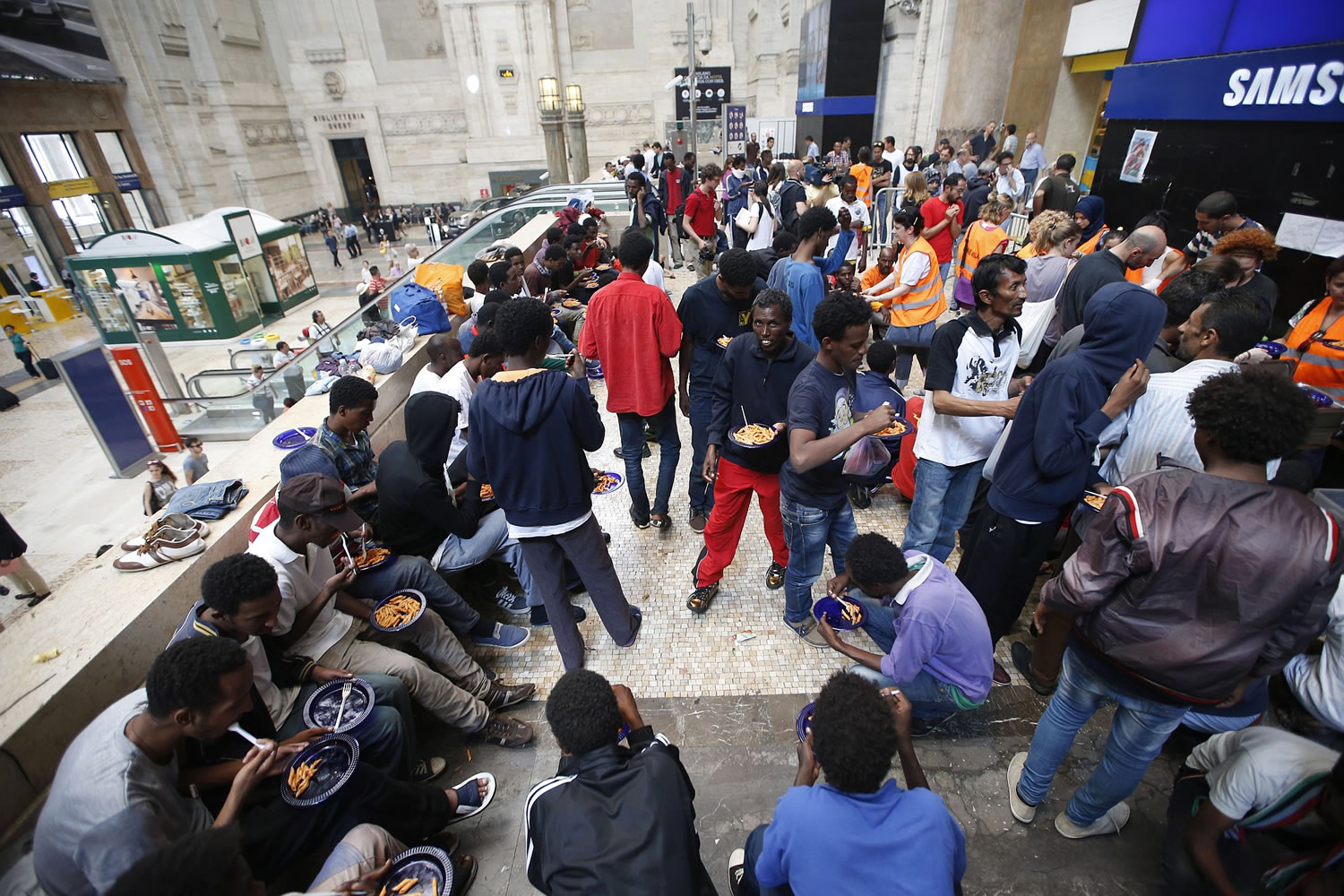MILAN — Milan city officials have appealed for help in managing the huge flow of migrants arriving from southern Italy after rescue at sea, as increasing numbers are unable to find beds and are sleeping in the train station.
About 350 migrants have slept in and around the station the last two nights because of a lack of beds in city-organized centers, according to the Progetto Arca charity.
Hundreds were waiting Thursday afternoon on a mezzanine to find out if there would be a bed for them that night, including a group of children who drew with pens and paper donated by an 11-year-old Italian girl who asked her mother to bring her to the station after seeing the children on the midday news.
“I wanted to help these children who unfortunately are escaping war and don’t have anything left. I also wanted to console them,” Alice Chiappelli said as her mother watched from nearby.
The Red Cross dispatched a team on Thursday in response to reports of scabies among migrants,. Given the serious situation in Milan’s Central Station, regional officials were opening a health post there on today.
The city’s top welfare official, Pierfrancesco Majorino, has appealed to station officials to provide space for new arrivals to receive assistance and rest away from the main arrivals hall.
“Everyone would be better off, even travelers,” Majorino said in an appeal on Wednesday.
Italy’s state railway said in a statement Thursday that it would renovate space adjacent to the station to receive migrants, but it gave no time frame.
Milan is hosting the Expo 2015 world’s fair, now in its second month, which is expected to attract over 20 million visitors during its six-month run. While the Expo site is a half-hour ride from the main station, many tourists pass through it each day.
Milan city officials say more than 64,000 migrants have passed through the Central Station in the last 20 months, with 10,000 since Jan. 1. Most are Eritreans and Syrians fleeing conflict and oppression at home. Many of them avoid being officially recorded so they can reach relatives or friends in northern Europe and ask for international protection there.
They come to Milan because word has spread that city officials provide food, medical care, beds and legal advice. The vast majority of them remain just a few days before moving on.
Milan officials say the city finds places for about 800 people to sleep each night, including families with children, with a peak of 1,400 last August.
There have been 500 cases of scabies among the migrants since Jan. 1, one-fifth in the last 10 days, said Dr. Giorgio Ciconali, who is organizing the new health station. While scabies is treatable and there is little threat of it spreading into the general population, Ciconali said many migrants leave Milan after the first treatment and there is no way of knowing if they are healed.
Eritrean Mohamed Ali was taken by ambulance to the hospital for treatment of scabies just an hour after he arrived in Milan. The 36-year-old arrived in Sicily on Monday with five children, three of his own and two relatives, and was hoping to be reunited with his wife, who arrived last week with two other children, after they were forced to separate in Libya.
Ali’s hope is to join cousins in Switzerland.
”I have to connect with my wife first,” Ali said. ”I am so happy, I can’t wait.”




